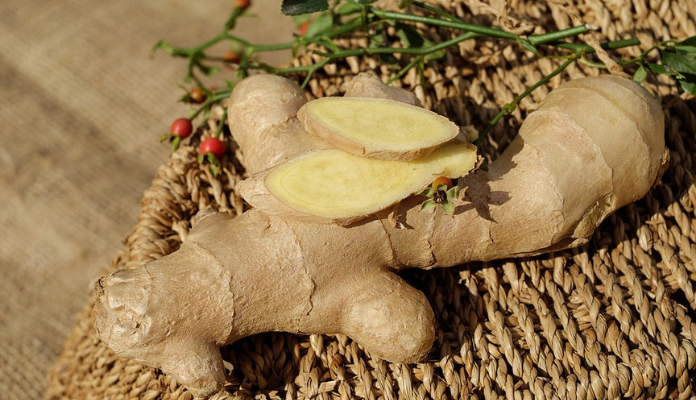Zest Up Your Life With Ginger
Spicy and aromatic, ginger is a flowering plant, which is widely used as a spice across the world. It adds a special flavour to vegetarian and non-vegetarian dishes including stir fries and has a firm texture. Ginger can be red, yellow or white in colour depending on its variety. Fresh ginger root is available throughout the year and is a good source of vitamin C, magnesium, potassium, copper and manganese.
This spice is among the healthiest and most delicious spices on the planet, loaded with nutrients and bloactive compounds that are beneficial for the body and brain.
Ginger has been used as a form of traditional or alternative medicine. It helps improve digestion, reduces nausea and fights flu and the common cold. It is also very effective in treating the symptoms of gastrointestinal problems. Modern science has revealed that ginger has many healing properties as it is rich in antioxidants and anti inflammatory properties.
Some of this spice’s benefits are mentioned below:
- Curbs Nausea And Vomiting
Ginger is highly effective against nausea. But it is most effective against pregnancy-related nausea such as morning sickness. It has often been used as a remedy for sea sickness and also as prescription medication. - Provides Gastrointestinal Relief
It is very effective in eliminating gastrointestinal distress. - Boosts Immunity
Ginger promotes healthy sweating, which is often helpful in colds and flu. It is concentrated with active substances so even using a small amount is enough. It provides protection against invading microorganisms including bacteria such as E. coli, staphylococcus aureus and fungi, including candida. - Anti-Inflammatory Properties
This spice contains very potent anti inflammatory compounds called gingerols. These substances help those afflicted with osteoarthritis or rheumatoid arthritis by reducing pain levels and improving mobility. - Reduces Menstrual Pain
Research shows that ginger can reduce symptoms of menstrual pain in some women when taken during menstruation. It works as well as ibuprofen or mefenamic acid. - Helps Treat Cancer
Ginger’s anti-inflammatory properties make it beneficial for many chronic inflammatory diseases, including cancer. Its anti tumour properties may help defeat difficult-to-treat types of cancer, including lung, colon, ovarian, breast, skin and pancreatic. - Promotes Weight Loss
This spice’s metabolism boosting substances increase thermogenesis in the body, thus burning stored up fat to create heat. This impacts overall metabolism and tat storage.
How much ginger to use depends on what it is being used for. It you have a serious issue, work with an experienced natural health practitioner who can guide you proper dosages and forms. To benefit properly, ginger extract is used, although fresh or even dried ginger are equally beneficial. Many people enjoy ginger tea and this the simplest ways to consume it. Chop, grate and mince the ginger to add to tea or cooked dishes. It can also be added to stir fries or homemade soups. Using fresh ginger is best. Scrape oft the skin and add it to soups, sauces and stews.
“Ginger is among the healthiest and most delicious spices on the planet, loaded with nutrients and bioactive compounds that are beneficial for the body and brain”
Ginger In Your Food
- Tea : Many of us consume a lot of tea during the day. Just add a piece of ginger to your tea and benefit from its goodness.
- Soup : Fresh ginger, grated or pureed, adds zest to hot, creamy soups.
- Fish : Adding ginger to tender, flaky fish gives an aromatic flavour and taste.
- Stir Fries : Almost every stir fry needs ginger to spice it up and add flavour.
- Sweets : Adding fresh ginger to sweets enhances its taste and flavour.
